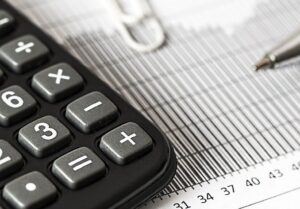Obtaining residency in Serbia is quickly becoming one of the most popular options for foreign investors to get into one of the most tax friendly jurisdictions in Europe.
But before you pack your bags, it’s important to understand taxes in Serbia to know where you stand, and which taxes apply to your personal circumstances.
In this guide you will learn about:
- Who pays taxes in Serbia
- Income tax in Serbia
- Social security tax in Serbia
- Capital income taxes
- Tax on pension in Serbia
- Corporate tax in Serbia
- Value added tax (VAT)
- Inheritance and gift tax
- Cryptocurrency tax rate for 2024
- Serbia double tax treaties
- Benefits of tax residency in Serbia
- How to pay taxes in Serbia
Who pays taxes in Serbia?
Those considered tax residents of Serbia are required to pay tax. This goes for worldwide income related to anything earned abroad or in Serbia, for example, income from non resident companies. However, for non-residents, only Serbian sourced income is taxed.
Who is considered a tax resident in Serbia?
Serbia has residency-based tax basis, which means that residents or citizens are not taxed in Serbia solely based on their immigration status.
An individual is considered a tax resident if they spend more than 183 days in Serbia within a 12-month period. This can be calculated based on consecutive or non-consecutive days. This means an investor can stay in Serbia for up to 182 days within any 12-month period without becoming a tax resident.
Income Tax in Serbia
Annual income tax rates in Serbia are calculated differently to what you may be accustomed to. Here is a simple breakdown of the income tax in Serbia:
Income | Tax rate |
Personal Tax Rates | 10% |
Income above three average annual salaries (approximately €20,000) | 10% on the amount exceeding this threshold |
Income above six average annual salaries (approximately €40,000) | 15% on the amount exceeding this threshold |
The following types of income are subject to individual tax income in Serbia:
- Immovable property income
- Capital income
- Capital gains
- Earnings
- Other income
- Income from independent activities
- Income from copyright and related rights and industrial property rights
Social Security Tax in Serbia
In Serbia, both employees and employers contribute to social security, covering retirement, health, and unemployment benefits. Here is a breakdown of social security taxes in Serbia:
For employees
Serbian workers’ pay 19.9% of their salary toward social security, divided among:
Retirement and disability insurance | 14% |
Health insurance | 5.15% |
Unemployment insurance | 0.75% |
However, contributions are capped at 5 times the average annual salary. With an average monthly salary of about 105,000 RSD ($947/€897) as of November 2024, the highest annual employee contribution is around 250,000 RSD ($2,255/€2,136).
For employers
Employer taxes in Serbia also apply, with employers paying 15.65% of each employee’s salary, covering:
Retirement and disability insurance | 10.5% |
Health insurance | 5.15% |
Company contributions are also capped at 5 times the average annual salary of each employee paid, with a maximum yearly cost of around 215,970 RSD ($1,963/€1,800).
Combined, the total social security cost is about 35.55% of an employee’s gross salary. While comparable to social security costs in Western Europe, Serbia’s lower wages make it an affordable place for businesses, encouraging investors to set up operations in the country.
Capital Income Taxes
Dividends
Dividends in Serbia are taxed at a rate of 15%. Dividends are payments made from companies to shareholders to distribute the company profits. This is only applicable if the company does not reinvest the money back into the company.
Dividends are important to consider if you are applying for the Serbia Residency by Investment program, with one of the pathways being investing in an existing Serbian business.
Real estate income
If you’re thinking about buying property in Serbia there are a few things to consider. The real estate transfer tax is set at 2.5% of the property price. There is also an additional 0.4% annual real estate tax due each year.
If you’re planning on renting out your property in Serbia, rental income is taxed at 20%. However, there are deductions for expenses, including maintenance and mortgage interest.
Capital gains
Both residents and non-residents in Serbia are required to pay capital gains tax at a rate of 15%. Realized capital gains tax in Serbia can come from:
- Real estate
- Financial assets
- Cryptocurrencies
- Sale of precious metals
For those with income from capital and savings, Serbia is one of the more attractive jurisdictions. Additionally, Serbia does not have a wealth tax, making it more attractive for investors.
Important to note: If you hold a property in Serbia for longer than ten years there is no capital gains tax on the sale.
Tax on Pension in Serbia
The Serbian residency and tax system can serve as an attractive option for retirees, particularly due to its favorable tax regimes for pension income. In Serbia, pension income is generally exempt from personal income tax.
This means that retirees receiving pensions from abroad or within Serbia do not face taxation on these earnings, allowing them to retain their full pension income.
Serbia offers a relatively low cost of living compared to many Western countries, making it an appealing destination for retirees seeking a comfortable lifestyle without high expenses. This includes affordable housing, healthcare, and daily living costs.
Corporate Tax in Serbia
The Serbia corporate tax rate is set at 15% of business income, making it attractive for businesses and entrepreneurs looking to establish operations in Serbia.
Serbia also offers a stable economy with Serbia’s GDP growing from $7,733 in 2020 to $11,361 in 2023.
Value Added Tax (VAT)
The standard value added tax (VAT) rate in Serbia is 20% for all products and services that do not fall under essential.
Essential products and services in Serbia carry a VAT rate of 8%. This includes items like:
- Food
- Books
- Medication
- Healthcare services
- Education
- Computers
Inheritance and Gift Tax

There are some exemptions, including:
- Immediate family members: Children and spouses are generally exempt from inheritance tax or are taxed at a much lower rate.
- Siblings and grandparents: Relatives that fall in the second inheritance order are typically taxed 1.5%.
- Distant relatives or unrelated heirs: Those that fall within the third order or beyond may be taxed as much as 2.5%.
Cryptocurrency Serbia Tax Rate for 2024
Cryptocurrency in Serbia is generally treated as capital gains. This means any income generated or earnings acquired from selling or trading crypto in Serbia is subject to the capital gains rate of 15%.
Serbia Double Tax Treaties
Serbia has established a network of double tax treaties (DTTs) with numerous countries to prevent double taxation and promote international trade and investment.
As of January 2024, Serbia has signed 64 double tax treaties with various countries, including all EU member states (except Portugal), Canada, China, Japan, UK, and the UAE.
Benefits of Tax Residency in Serbia
- Favorable tax rates: Serbia has relatively low tax rates compared to some other countries, especially Western countries
- No wealth tax: Serbia does not levy any wealth tax, which can significantly benefit individuals with substantial assets or investments.
- Double taxation treaties: Serbia has signed double taxation avoidance agreements with over 60 countries. These treaties help prevent individuals from being taxed on the same income in multiple jurisdictions, providing significant tax relief and optimizing overall tax liabilities.
How to Pay Taxes in Serbia: Step by Step Guide
- Step one: Determine your tax residency status: Residents are taxed on worldwide income. Non-residents in Serbia are only taxed on income from within Serbia.
- Step two: Register for a tax ID number: To pay taxes in Serbia you must have a tax ID number, referred to as PIB in Serbia. You can register for the number at a local Tax Administration office by presenting ID and any required forms. Non-residents may need to bring additional documentation.
- Step three: Calculate your taxable income: It’s important to understand what you are liable for depending on your tax residency status. You may also qualify for certain deductions and exceptions.
- Step four: File tax returns: The Serbian tax year follows a calendar year with deadlines to file annual returns generally happening in March each year. It’s important to understand if your taxes are directly taken off your income by your employer or if you are liable to ensure you don’t pay twice.
- Step five: Make payments: Taxes in Serbia can be paid using the online tax portal or making a direct payment at an authorized Serbian bank.
Paying taxes in Serbia is generally a straightforward process if you keep on top of what you are liable for. In more complex cases or for companies it may be best to speak with a specialist on Serbia taxation.
How Can Global Citizen Solutions Help You?
Global Citizen Solutions is a boutique migration consultancy firm with years of experience delivering bespoke residence and citizenship by investment solutions for international families. With offices worldwide and an experienced, hands-on team, we have helped hundreds of clients worldwide acquire citizenship, residence visas, or homes while diversifying their portfolios with robust investments.
We guide you from start to finish, taking you beyond your citizenship or residency by investment application.

Frequently Asked Questions About Taxes in Serbia
Does Serbia have taxes?
Yes, Serbia has taxes, including income taxes, property taxes, VAT, corporate tax, and inheritance and gift tax.
How do taxes work in Serbia?
In Serbia, residents are taxed on worldwide income, while non-residents are taxed only on Serbia-sourced income. Key taxes include income tax, property tax, VAT, and other income. Employers handle most tax withholdings for employees, but individuals with additional income must file an annual tax return. Taxes can be paid online via the e-Tax portal or at authorized banks.
What is the VAT rate in Serbia?
Sales tax, also known as VAT in Serbia is set at a standard 20%, with some essential items falling under a reduced rate at 8%.
What is the personal income tax in Serbia?
Personal income tax in Serbia is applied separately to various types of income at flat rates of 10%, 15%, or 20%, depending on the category of taxable income. This includes employment income, capital income, capital gains, and other earnings. The salary tax rate is 10%, and it is the employer’s responsibility to calculate, withhold, and remit this tax.
How much is property tax in Serbia?
Property tax in Serbia varies depending on the type of property and value. Generally residential properties are taxed at a rate of 0.4%.
What is the tax revenue of Serbia?
Serbia’s tax revenue, as a percentage with Serbia’s GDP growing from $7,733 in 2020 to $11,361 in 2023.
What is nontaxable income in Serbia?
Certain types of income are nontaxable in Serbia. This can be a partial or full exemption, including social security contributions and pension benefits, gifts and inheritance, and certain investment incomes.
Is Serbia a tax-free country?
No, while you may have heard the term Serbia tax haven, Serbia does in fact have a complex tax system, including income tax, property tax, corporate tax for legal entities, and much more.
What is the average annual salary in Serbia?
The average annual salary in Serbia is around 1,260,000 RSD ($11369,61/€10770,35).


